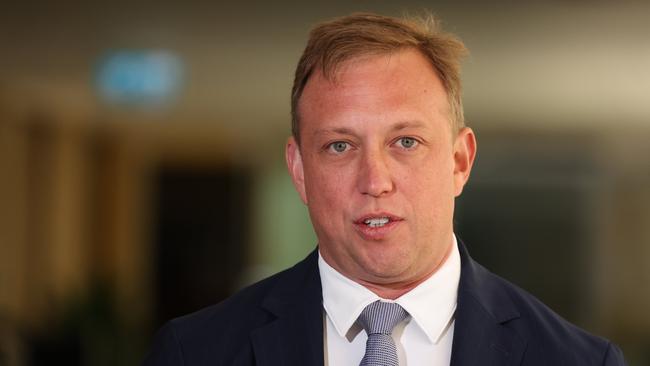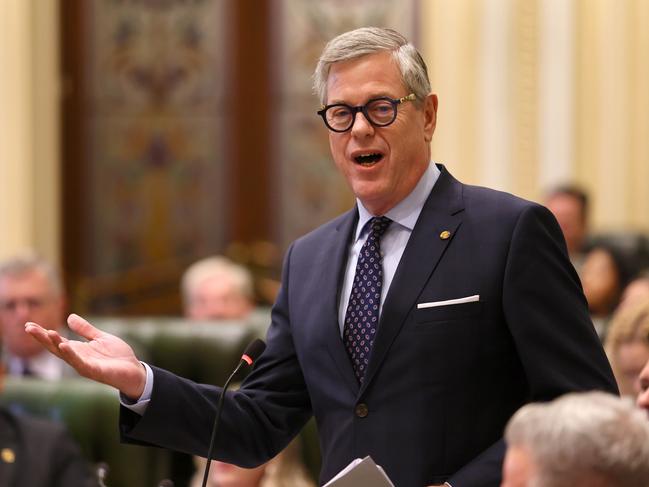BPIC Qld: Labor claims tens of millions in termination fees on torn-up contracts
Labor claims the jettisoning of contracts struck under the CFMEU’s “sweetheart deal” could have unintended consequences for taxpayers.

QLD Politics
Don't miss out on the headlines from QLD Politics. Followed categories will be added to My News.
Queensland taxpayers could be slugged with tens of millions of dollars in termination fees as the government pulls tenders for infrastructure projects across the state, Opposition Leader Steven Miles claims.
It follows Health Minister Tim Nicholls earlier this week tearing up the $530m tender for stage two of the Townsville University Hospital expansion so it could be reissued at a cheaper rate following the suspension of Best Practice Industry Conditions.
Industrial Relations and Infrastructure Minister has Jarrod Bleijie since confirmed all government departments were now revisiting projects that were not yet signed on to, to see what else could be re-tendered to save money.
But Mr Miles on Thursday claimed the move could cost tens of millions of dollars in termination fees.
“In many cases, when you tender stage one with an option to do stage two, there are costs associated with not proceeding with the same company for stage two,” he said.
“It is very common for those kinds of tenders to incorporate termination costs and the government should be clear with Queenslanders what those termination costs are.”
A spokesman for Mr Nicholls’ office said there was no termination payment associated with the withdrawal of the Townsville University Hospital tender for stage two works.

“There will be no termination payment and no sackings as a contract is not yet entered into,” he said.
“Workers conducting stage one will continue to complete work into next year and no doubt the company will continue to find other work for them after that.
“Existing contracts will be honoured.”
While the government is confident the BPIC suspension will save billions in construction costs to taxpayers, the Opposition has argued cheaper build contracts would only be possible through lower wages offered to tradies working on government projects.
“They (government) think they can undercut industry conditions here in Queensland by getting cheaper labour, cheaper companies from interstate,” Mr Miles said.
“There’s no magic wand here, they can’t get cheaper supplies, they’re counting on getting cheaper labour, and that means lower wages for Queensland tradies.”
Mr Miles said the decision to re issue tenders for government projects across the board had sent shockwaves through the construction industry.
“There are people engaged right now to deliver (projects) and deliver them for Queenslanders, and now every single one of them is effectively up in the air,” he said.
More Coverage






